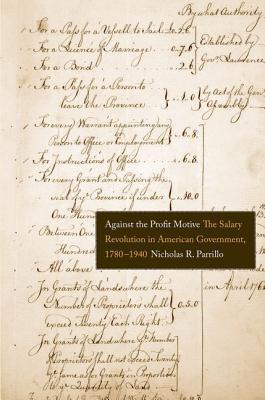
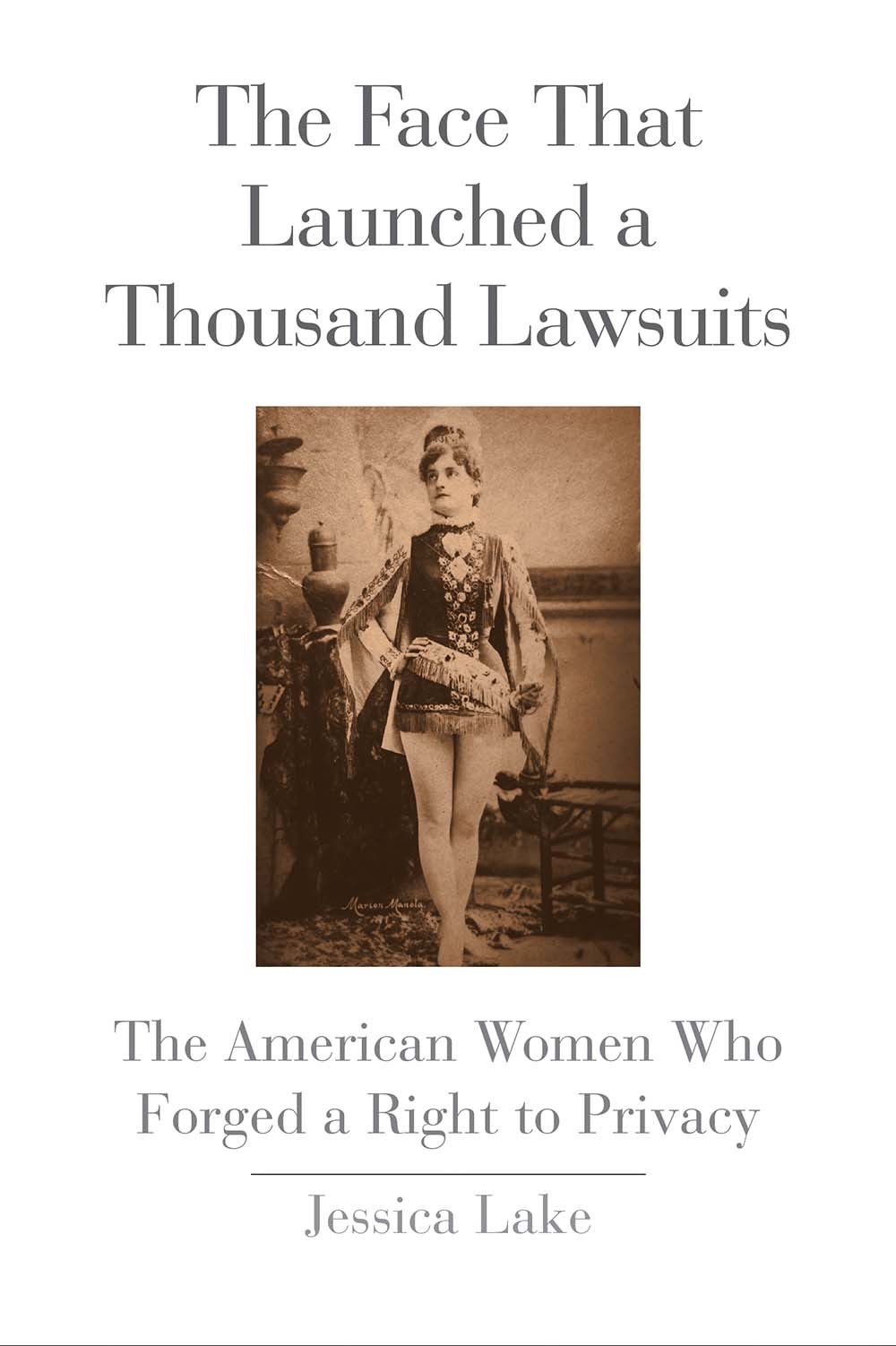
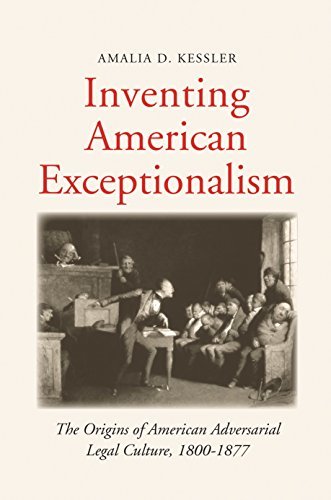
Yale Law Library Series in Legal History and Reference
Series · 6 books · 2013-2020
Books in series

#6
Against the Profit Motive
The Salary Revolution in American Government, 1780-1940
2013
In America today, a public official’s lawful income consists of a salary. But until a century ago, the law frequently provided for officials to make money on a profit-seeking basis. Prosecutors won a fee for each defendant convicted. Tax collectors received a percentage of each evasion uncovered. Naval officers took a reward for each ship sunk. Numerous other officers were likewise paid for “performance.” This book is the first to document the American government’s for-profit past, to discover how profit-seeking defined officialdom’s relationship to the citizenry, and to explain how lawmakers—by ultimately banishing the profit motive in favor of the salary—transformed that relationship forever.

#8
The Face That Launched a Thousand Lawsuits
The American Women Who Forged a Right to Privacy
2016
A compelling account of how women shaped the common law right to privacy during the late nineteenth and early twentieth centuries
Drawing on a wealth of original research, Jessica Lake documents how the advent of photography and cinema drove women—whose images were being taken and circulated without their consent—to court. There they championed the creation of new laws and laid the groundwork for America’s commitment to privacy. Vivid and engagingly written, this powerful work will draw scholars and students from a range of fields, including law, women’s history, the history of photography, and cinema and media studies.

#9
Inventing American Exceptionalism
The Origins of American Adversarial Legal Culture, 1800-1877
2017
A highly engaging account of the developments-not only legal, but also socioeconomic, political, and cultural-that gave rise to Americans' distinctively lawyer-driven legal culture
When Americans imagine their legal system, it is the adversarial trial-dominated by dueling larger-than-life lawyers undertaking grand public performances-that first comes to mind. But as award-winning author Amalia Kessler reveals in this engrossing history, it was only in the turbulent decades before the Civil War that adversarialism became a defining American practice and ideology, displacing alternative, more judge-driven approaches to procedure. By drawing on a broad range of methods and sources-and by recovering neglected influences (including from Europe)-the author shows how the emergence of the American adversarial legal culture was a product not only of developments internal to law, but also of wider socioeconomic, political, and cultural debates over whether and how to undertake market regulation and pursue racial equality. As a result, adversarialism came to play a key role in defining American legal institutions and practices, as well as national identity.
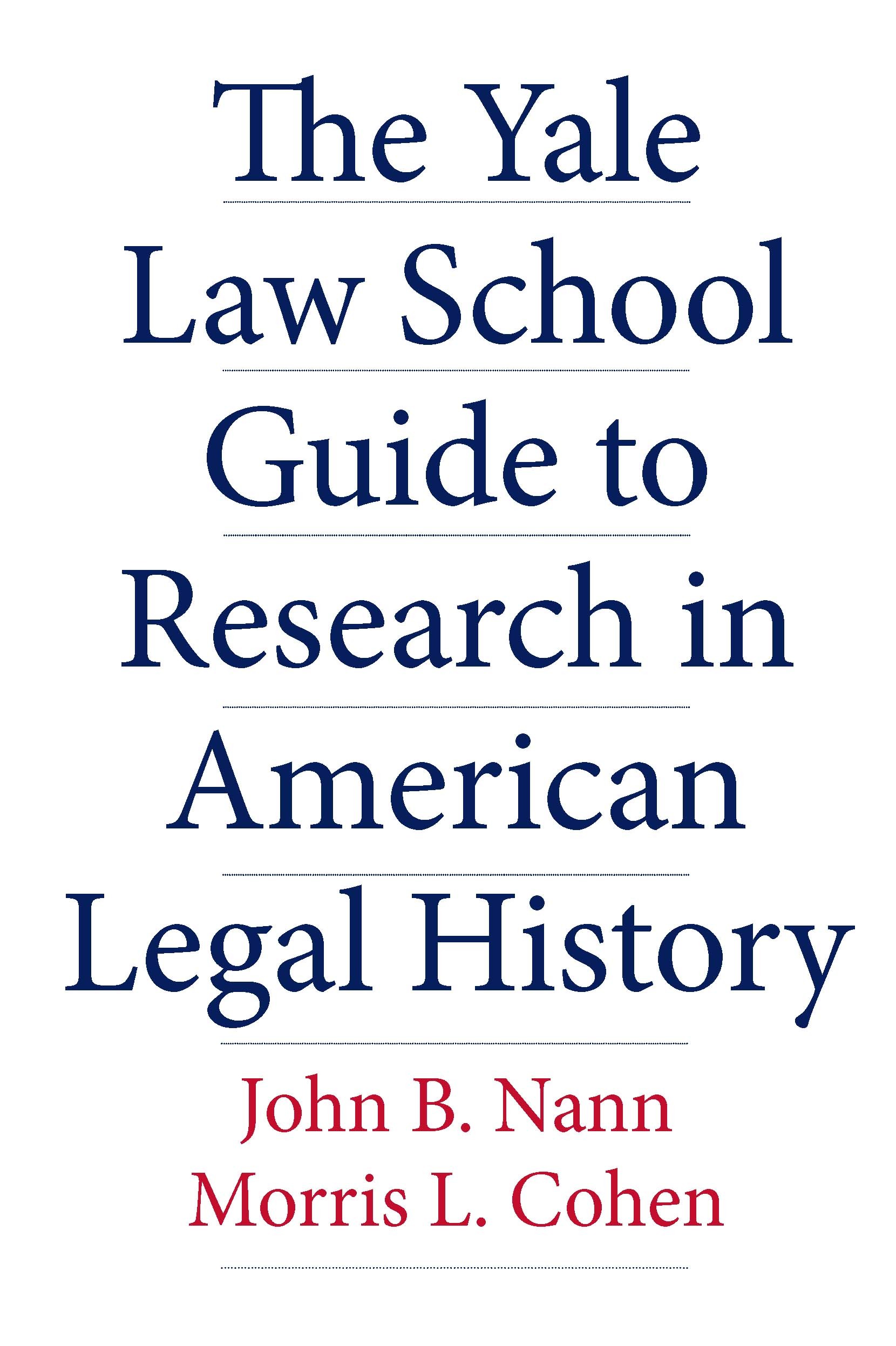
#10
The Yale Law School Guide to Research in American Legal History
2018
The study of legal history has a broad application that extends well beyond the interests of legal historians. An attorney arguing a case today may need to cite cases that are decades or even centuries old, and historians studying political or cultural history often encounter legal issues that affect their main subjects. Both groups need to understand the laws and legal practices of past eras. This essential reference is intended for the many nonspecialists who need to enter this arcane and often tricky area of research.
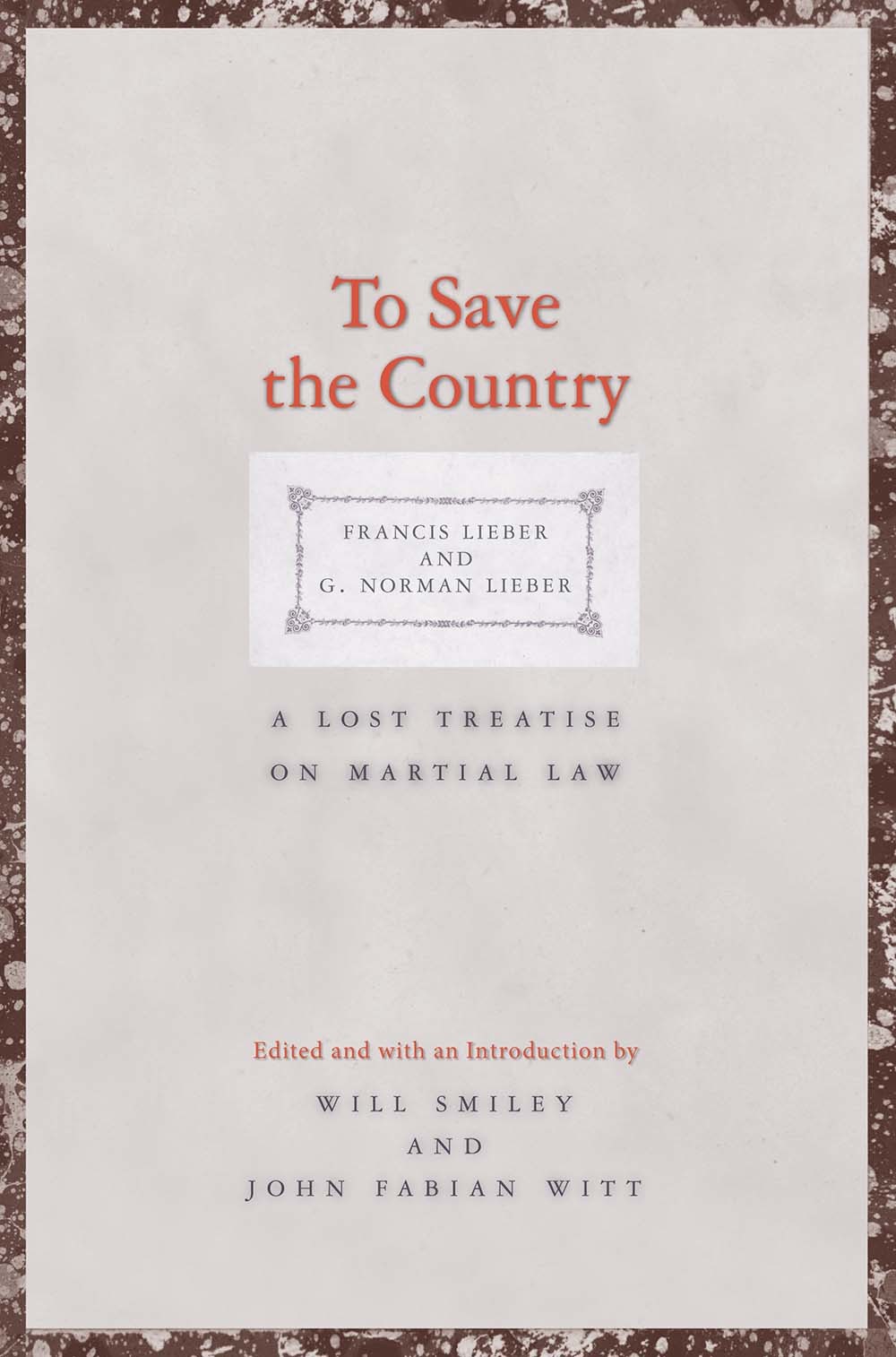
#11
To Save the Country
A Lost Treatise on Martial Law
2019
A Civil War-era treatise addressing the power of governments in moments of emergency
The last work of Abraham Lincoln’s law of war expert Francis Lieber was long considered lost—until Will Smiley and John Fabian Witt discovered it in the National Archives. Lieber’s manuscript on emergency powers and martial law addresses important contemporary debates in law and political philosophy and stands as a significant historical discovery.
As a key legal advisor to the Lincoln White House, Columbia College professor Francis Lieber was one of the architects and defenders of Lincoln’s most famous uses of emergency powers during the Civil War. Lieber’s work laid the foundation for rules now accepted worldwide. In the years after the war, Lieber and his son turned their attention to the question of emergency powers. The Liebers’ treatise addresses a vital question, as prominent since 9/11 as it was in Lieber’s how much power should the government have in a crisis? The Liebers present a theory that aims to preserve legal restraint, while giving the executive necessary freedom of action.
Smiley and Witt have written a lucid introduction that explains how this manuscript is a key discovery in two both as a historical document and as an important contribution to the current debate over emergency powers in constitutional democracies.
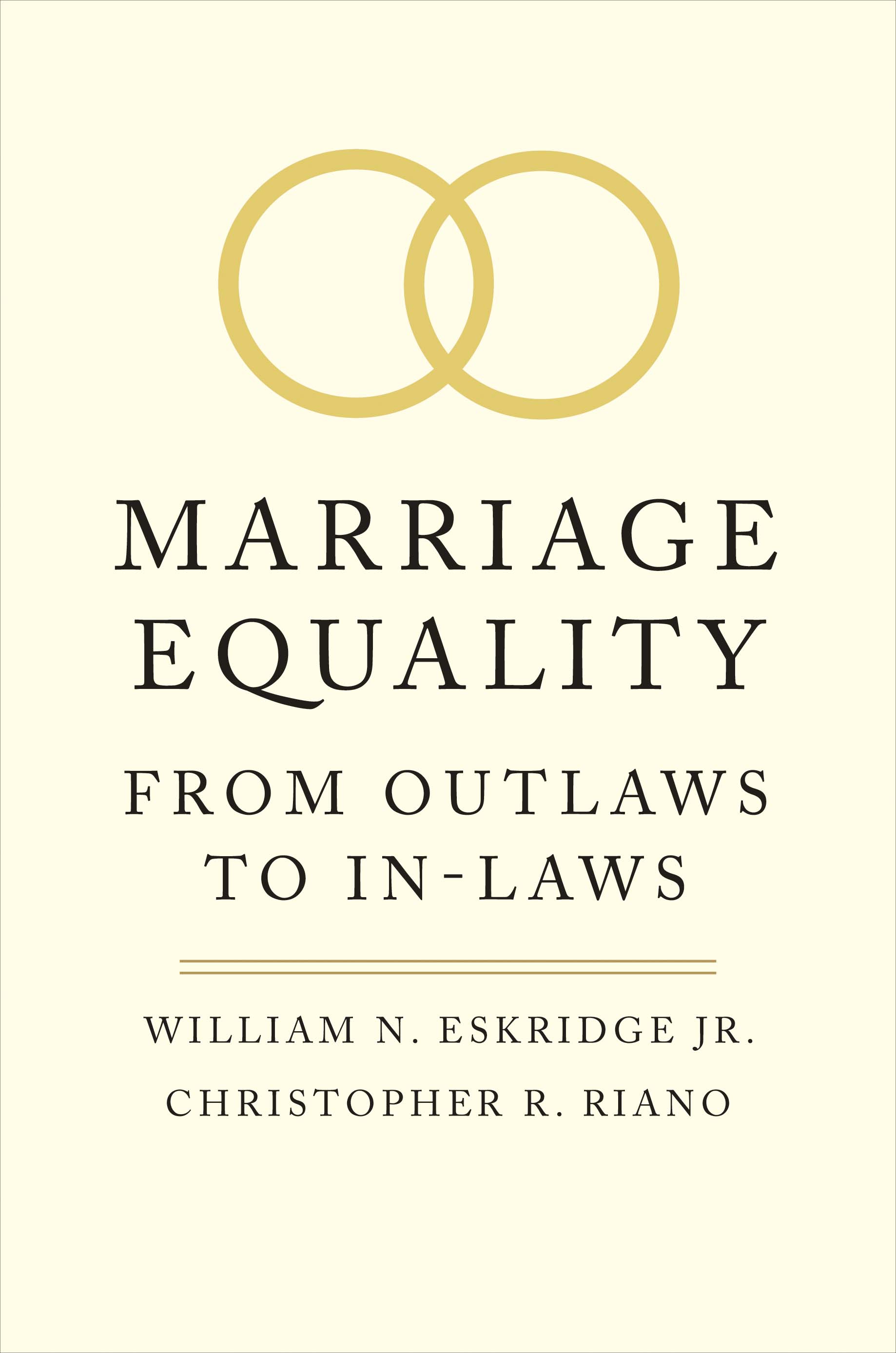
#13
Marriage Equality
From Outlaws to In-Laws
2020
Winner of the 2021 ABA Silver Gavel Award: The definitive history of the marriage equality debate in the United States, praised by Library Journal as "beautifully and accessibly written... An essential work.”
"\[A\] magnum opus about the political and legal path to Obergefell."—Eric Cervini, New York Times Book Review
"\[An\] impressive survey of how far the gay rights movement has come."— Publishers Weekly
As a legal scholar who first argued in the early 1990s for a right to gay marriage, William N. Eskridge Jr. has been on the front lines of the debate over same‑sex marriage for decades. In this book, Eskridge and his coauthor, Christopher R. Riano, offer a panoramic and definitive history of America’s marriage equality debate. The authors explore the deeply religious, rabidly political, frequently administrative, and pervasively constitutional features of the debate and consider all angles of its dramatic history. While giving a full account of the legal and political issues, the authors never lose sight of the personal stories of the people involved, or of the central place the right to marry holds in a person’s ability to enjoy the dignity of full citizenship. This is not a triumphalist or one‑sided book but a thoughtful history of how the nation wrestled with an important question of moral and legal equality.
Authors
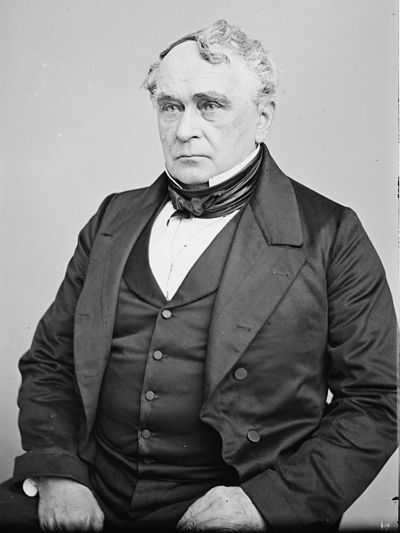
Francis Lieber
Author · 1 book
Francis Lieber (1798 or 1800 – 1872), known as Franz Lieber in Germany, was a German-American jurist, gymnast and political philosopher. He edited an Encyclopaedia Americana. He was the author of the Lieber Code during the American Civil War, also known as Code for the Government of Armies in the Field (1863). The Lieber Code is considered the first document to comprehensively outline rules regulating the conduct of war, and laid the foundation for the Geneva Conventions.